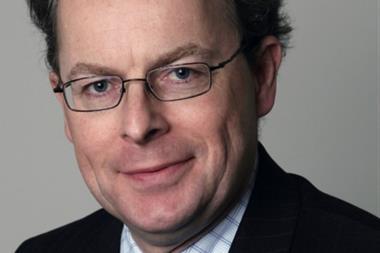It is certainly not the first idea to wing its way across the Atlantic to Europe.
American inventions from the factory production line to credit cards have all caught on over here. Now it is the turn of commission recapture. The practice is gaining popularity with pension funds and other major investors in the UK, the Netherlands and elsewhere in the continent, having been well established in the US for years. The idea is simple: In a bid to win greater volumes of business, some securities brokers are willing to hand back to clients a portion of the commission they earn on trades. Instead of fund managers negotiating individually on their clients' behalf with brokers, international brokers or other intermediaries set up commission recapture programmes for large global investors. They usually have a list of brokers who are prepared to hand back a proportion of their commission, and the fund manager can direct trades where possible and desirable through the programme.
The rewards for pension funds can be huge. Howard Schwartz, chief executive of international brokers Lynch, Jones & Ryan (LJR), says in a hypothetical example, a US investment fund added 180 basis points to performance over a period from 1987 to 1997 by using a commission recapture programme.
Adrian Jackson of Frank Russell Securities gives an example of a £100m (E142m) European portfolio, which has 50% annual turnover. At 25 basis point commission levels, total yearly commission paid would be £250,000. If a quarter of all trades were directed through the scheme, then £62,500 in commission would be returned. Half of this goes to the broker and Frank Russell, so the portfolio's gain would be £31,000 a year.
The concept originated in the US and in the last couple of years has become increasingly popular in the UK and continental Europe," says Jackson.
However, UK clients started using Frank Russell's commission recapture programme 10 years ago.
Rules on how the rebated commission is used are rigid. The money must be directed back into the pension fund. It could be used to pay for administrative costs, but only if those costs are normally borne by the assets of the fund, says Jackson.
The practice of commission recapture has developed from what is called soft commission, or soft dollar business in the US. Legal changes two decades ago laid the groundwork for this way of doing business, which has become widespread.
The NYSE abolished fixed commission rates in 1975 and shortly afterwards, section 28(e) was added to the Securities and Exchange Act of 1934. One effect of this amendment was that investment managers became free to buy research independently of the executing broker. Research had traditionally been bundled with the dealing service of brokers, but after this independent research firms emerged.
Soft commission today is where the broker executing trades for a fund manager agrees to pay for investment research services for the fund manager, out of the commission they receive. Soft commission is a deal between the fund manager and the broker, rather than the client and the broker. Some estimate that now as many as one third of all trades on the New York Stock Exchange may be related to soft commission.
On the face of it, this is basically an unbundling of the services a broker would normally provide. The commission a client pays through the fund manager to a traditional broker usually also pays for other services as well as the execution of the trade and facilitating the order. Normally this means the fund manager has access to the broker's market research.
A fund manager might use soft commission to obtain what he considered more independent research, or from a favoured electronic data vendor such as Reuters or Bloomberg, says Jackson.
However, opinions differ wildly in the financial community on whether soft commission is really a respectable way to do business. The Securities Exchange Commission (SEC) in the US published a report last year on soft dollar practices. One of its messages was that much more disclosure was needed about details of the business. The report found that most broker dealers and advisers lacked comprehensive soft dollar controls. It said that this lack on controls may have led to instances of incomplete disclosures to clients, using soft dollars for non-research purposes without disclosure, and inappropriate mixed-use allocations. Mixed-use could be where the money manager uses soft dollars to pay for its own overheads. SEC officials have since said that the report was only a first step and does not signal the end of the agency's concerns. In the past, soft commission has been seen as disreputable, because some of the rebated commission could be used for the personal benefit of the fund manager - travel, for example. But now the practise is regulated, and the money can only be used for investment research services.
And any fund manager has to disclose the fact they are doing it to their client, including details of the services that are provided.
"Disclosure is really the key," says Marler. UK regulators introduced rules on soft commission eight years ago.
"The reason why we do that is because of the potential conflict of interests," a Financial Services Authority spokesman says. "A fund manager might direct business through a particular channel because he gets a particular thing which is of benefit to him rather than of benefit to the client," he says.
The FSA rules state that not only must fund managers get written permission from their clients before using soft commission, but they must also disclose to clients any soft commission services they use. Only certain services are allowed. They must be directly relevant to investment, and could be advice or research or information services.
Soft commission may not be used to pay for expenses such as employee's salaries and travel, according to the FSA rules.
In May 1986, the US Department of Labor said in a technical bulletin that commissions were no different from any other asset of a pension plan. As such, the plan sponsor was charged with conserving that asset within the context of meeting the plan's financial objectives. This is seen as the basis of commission recapture in the US.
Firms which operate commission recapture programmes usually have a panel or list of brokers who will rebate commission.
Why do brokers willingly give up commission? "The key to success is getting more business through the door," says Russell's Jackson.
Also, the broker might make more money on the other side of the trade, he says.
The FSA has not brought in any regulations on commission recapture or directed commission. These practices are much less problematic than soft commission, the FSA spokesman says, because the client is the decision-maker. "That is a decision for the client to make... it is not the same thing as soft commission," he says.
So commission recapture is similar in many ways to soft commission, but far more transparent. With soft commission, the services the fund manager receives are often not quantifiable in cash terms. Schwartz likens this to going shopping when there are no price tags on the goods on sale. "It is a little outside of what the normal consumer would do," he says. But when commission is rebated, the amount is clear.
Commission recapture is now becoming more widespread in Europe. The trend is visible in the Netherlands, the Scandinavian countries and Italy, says TIR Securities managing director James Marler, although the growth in the UK has been more pronounced that elsewhere in the continent. LJR's Schwartz says his firm does commission recapture business in the Netherlands, Denmark and Germany as well as the UK. "We feel it is a business which is going to grow over the next few years," says Marler.
TIR is involved in both soft commission and directed commission. "They sit side by side in many cases," says Marler. Others disagree. Schwartz describes commission recapture as the exact opposite of soft commission because of the transparency issue.
A concern of many fund managers in the UK with commission recapture is that it could theoretically interfere with the fund manager's fiduciary obligation to get the best execution on all trades. The fear is that a broker might not execute the trade within the optimum time, or may fail to get the best price. The broker list may simply not include a broker who would provide best execution for a particular trade.
Marler says the issue of best execution is the same for a fund manager regardless of whether a commission recapture programme is in operation. "Every trade should be monitored for how good it is, whether directed or not," he says. Fund managers should make sure they have best execution monitoring services in place. There are a number of consultants who undertake this type of monitoring.
Jackson says the key to a successful commission recapture operation is not to change the way the manager works. To take the pressure off the manager to direct trades through the recapture programme and therefore certain brokers, the programme is usually only expected to be used for a proportion of trades.
This may be 25 to 35%, or even lower.
There are other reasons for keeping commission recapture-related trades as a proportion of overall trades.
Apart from best execution worries, Schwartz says there is a legitimate reason for an investment manager to maintain relations with the traditional brokerage community. For example, the manager may need the investment research services they provide.
And not all trades are suitable for commission recapture. In general, it is easier to discount simple transactions, says Schwartz. But commission recapture is not limited to equities trading; LJR also does fixed income.
Regulators in Europe outside the UK do not appear to oppose the use of commission recapture. "We've had discussions with all major regulators in Europe," says Marler. "They are of the opinion that the commission belongs to the underlying pension fund," he says. Schwarz agrees that regulators in Europe are very supportive of the practise. "It is extremely transparent and all of the agreements between us and the plan sponsor are in writing," he says. Depending on the requirements of the specific fund, there is regular reporting, he adds."










